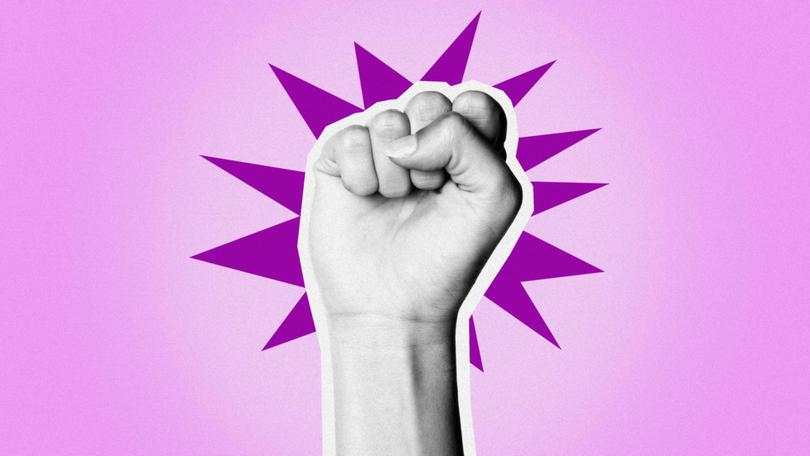JENI O’DOWD: Nowadays standing up for yourself is a fine line between being right and being labelled a ‘Karen’
The sun was setting over Waikiki Beach in Hawaii, with waves lapping gently at the shore. I was lounging on a beach chair, thinking I’d paid for a slice of paradise. But paradise suddenly got a bit complicated.

The sun was setting over Waikiki Beach in Hawaii, with waves lapping gently at the shore. I was lounging on a beach chair, thinking I’d paid for a slice of paradise. But paradise suddenly got a bit complicated.
Out of the blue, a beach attendant showed up, claiming I hadn’t paid. I tried to reason with her, explaining I had. But she wouldn’t budge, insisting I was wrong, and I started to protest.
As the argument escalated, my teenager, observing the scene with growing discomfort, couldn’t hold back any longer. She urged me to let it go in a hushed voice, adding: “Mum, you’re being a total Karen!”
Sign up to The Nightly's newsletters.
Get the first look at the digital newspaper, curated daily stories and breaking headlines delivered to your inbox.
By continuing you agree to our Terms and Privacy Policy.So, is standing up for my rights now not allowed? And yes, I did ask to speak to the manager (who, by the way, found I was right).
This incident and my daughter’s reaction made me think. Has the term Karen become so popular and widespread that it’s stopping a generation of women from speaking out? Not only middle-aged women, but younger women and even girls who do not want to be called a Karen. And where’s the male equivalent?
The term Karen started more than a decade ago, becoming popular to satirise class-based and racially charged hostility faced by many black Americans.
By 2018, the term Karen had become ubiquitous. It served as a shorthand for entitled and demanding behaviour, particularly among middle-aged white women.

But now, it is used to describe any middle-aged woman who dares to complain.
Like a virus, it has spread beyond serious issues to include trivial grievances, such as disputing the rental of a beach chair despite payment, questioning the presence of gluten in a dish labelled as gluten-free, or even expressing frustration at a driver who parks too close to your car.
Confrontations are filmed and uploaded within minutes for millions to see using the hashtag #KarenBehaviour — and mostly without showing the other side of the story.
Ironically, Karen was once the most popular girl’s name in Australia. Top Aussie demographer Mark McCrindle, founder and principal of social research firm McCrindle Research, says the name rose to prominence in the 1950s and 1960s.
By 1965, it was the most popular girl’s name in Australia. At the same time, Craig, Scott, Darren and Gregory were the most popular names for boys. (No memes there.)
As Mr McCrindle points out, generational disparaging is not new. Every generation imagines itself to be wiser than the one coming after and more intelligent than the one that went before.
Remember the term “OK boomer” used for baby boomers born between 1946 and 1964, or the term snowflake for millennials (1981-1996)?
Gen Z (1997-2002) laugh at millennials for not keeping up with the latest trends and generally being “annoying.”
However, the big difference with the term Karen is that an entire generation has been stereotyped using a female name as a pejorative rather than referring to a particular behaviour.
And, as Mr McCrindle says, the term also fails to recognise that women born in this era are generational pioneers.
“The gen Xers fought for, and won, parental leave and the right to continue their careers after having families,” he said.
Mum, you’re being a total Karen!
“They ushered in the era of working women, parental leave, and childcare. They ensured women with families could return to work and continue their careers. They adopted digital technology, which is much loved by Gen Z and Millennials today.
“The use of a single female name for someone likely to be a female in her fifties also fails to recognise that these women today are the ones most likely to volunteer or to step in as grandparents and help out their kids.
“To take a female name and turn that against women is not only unfortunate, to say the least, but it forgets the most important name — the name they have made for themselves.
“I think the Karens of this world and their cohort have made a name that should be honoured rather than what we see in popular culture.”
Anyone can be entitled and self-centred. Perhaps it’s the teen at the concert with an iPad in front of her, so you can’t see a thing. Or the elderly man walking his dog who won’t move to let you pass when jogging. The aggressive young male driver who refuses to let you change lanes, or perhaps your male neighbour who repeatedly uses his leaf blower at 7am on a Sunday.
So here’s my message to Millennials: Create a better term that doesn’t disparage an entire generation of women. Free speech is okay. People’s opinions are okay, even if you disagree with them. Being obsessively politically correct and judgmental is not okay.
I won’t stop speaking out or complaining if I think something is wrong. I will always encourage my daughters to do the same.
Let’s elevate the conversation and respect each other’s voices without resorting to harmful — and sexist — stereotypes.
